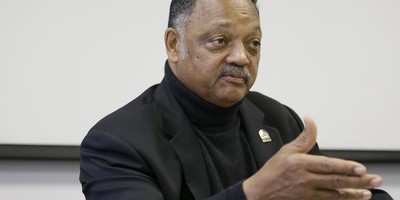“I have come here to bury the last remnant of the Cold War in the Americas.” That was Barack Obama’s “historic” announcement in Cuba last week. But was it true? What is the Castro regime if not a vestige of communism’s 20th century struggle against the capitalist enemy – also known as the Free World? And, self-evidently, President Obama had come not to bury the Castros but to normalize relations with them.
The Republic of Cuba, as it is officially called, has in reality been a socialist dynasty since Fidel Castro, who will be 90 in August, took power through force of arms in 1959. Back then, Dwight Eisenhower was in the White House, Hawaii became the 50th state and gas cost 25 cents a gallon. Mr. Obama had not yet been born but, as he helpfully shared with his Cuban audience, that was “the same year that my father came to the United States from Kenya.” In 2008, Fidel handed power to his younger brother Raúl who will be 85 in June.
At one point during Mr. Obama’s Cuban sojourn, he had his photo taken in the Plaza de la Revolucion before a giant mural of Che Guevara. To college students ignorant of history, Che was a romantic, swashbuckling hero. The reality, with which Mr. Obama ought to be familiar, is rather different.
“Che was a totalitarian,” wrote the distinguished left-of-center intellectual historian, Paul Berman. “He achieved nothing but disaster. Many of the early leaders of the Cuban Revolution favored a democratic or democratic-socialist direction for the new Cuba. But Che was a mainstay of the hardline pro-Soviet faction, and his faction won. Che presided over the Cuban Revolution's first firing squads. He founded Cuba's ‘labor camp’ system—the system that was eventually employed to incarcerate gays, dissidents, and AIDS victims.”
Peruvian political commentator Alvaro Vargas Llosa has recalled that “Guevara murdered or oversaw the executions in summary trials of scores of people—proven enemies, suspected enemies and those who happened to be in the wrong place at the wrong time.”
Recommended
In other words, Che was what Mr. Obama would call a violent extremist. And in what can only be called a terrible irony, contemporary violent extremists – they prefer to call themselves jihadis -- were soon setting off bombs in Brussels, the de facto capital of Europe.
Mr. Obama briefly took note of “these outrageous attacks” -- though he didn’t look or sound outraged. He reassured the “people of Belgium” that the “thoughts and prayers of the American people” are with them – though there was nothing resembling a concrete reassurance in his assertion that, “We can and we will defeat those who threaten the safety and security of people all around the world.”
The CVE (Countering Violent Extremism) experts who advise Mr. Obama emphasize job programs and improved efforts to integrate Middle Eastern immigrants into European and American society. You think that will do the trick?
The president next attended an exhibition game between the Tampa Bay Rays and the Cuban national baseball team. The terrorists win, he told reporters, only if we allow them to disrupt our lives. That attitude may be easier to adopt if you fly on private aircraft with armed bodyguards than if you are among the common folks dragging luggage and small children through crowded airports.
Mr. Obama believes that people like me are overreacting to terrorism which, as he told the Atlantic’s Jeffery Goldberg, takes fewer lives than “handguns, car accidents and falls in bathtubs.” He does not acknowledge that the number of terrorist attacks and victims has risen steeply since he’s been in office. Nor does it seem to have occurred to him that the regimes and movements responsible are eager to increase their lethality and are working diligently to acquire the skills and weapons necessary.
Such myopia is not new. In 1917, few political leaders foresaw that the advent of Leninist regimes would lead to a death toll in the tens of millions within the century. Mr. Obama did not review that history in Cuba. On the contrary, he spoke of “our two different systems” as if they were morally equivalent.
He asserted that there is a commonality among the “ideals that are the starting point for every revolution – America’s revolution, the Cuban revolution, the liberation movements around the world.”
That, too, is patently untrue: The American Revolution was premised on the belief that individuals are “endowed by their Creator with certain unalienable Rights.” The Russian and Cuban Revolutions were intended to establish a “dictatorship of the proletariat.” The Iranian revolution and the insurgencies that have followed in its wake are meant to re-establish an Islamic empire to which all peoples must submit. These are hardly minor distinctions.
In Argentina a few days later, Mr. Obama told an audience of young people: “So often in the past there has been a division between left and right, between capitalists and communists or socialists, and especially in the Americas, that’s been a big debate.” He added: “Those are interesting intellectual arguments, but I think for your generation, you should be practical and just choose from what works. You don’t have to worry about whether it really fits into socialist theory or capitalist theory. You should just decide what works.”
Were Che Guevara still with us – two years younger than Fidel, he was executed in Bolivia in 1967 – he’d doubtless be cheered to hear an American president talking that way, not to mention posing with his likeness. You and I might experience a rather different reaction.

























Join the conversation as a VIP Member